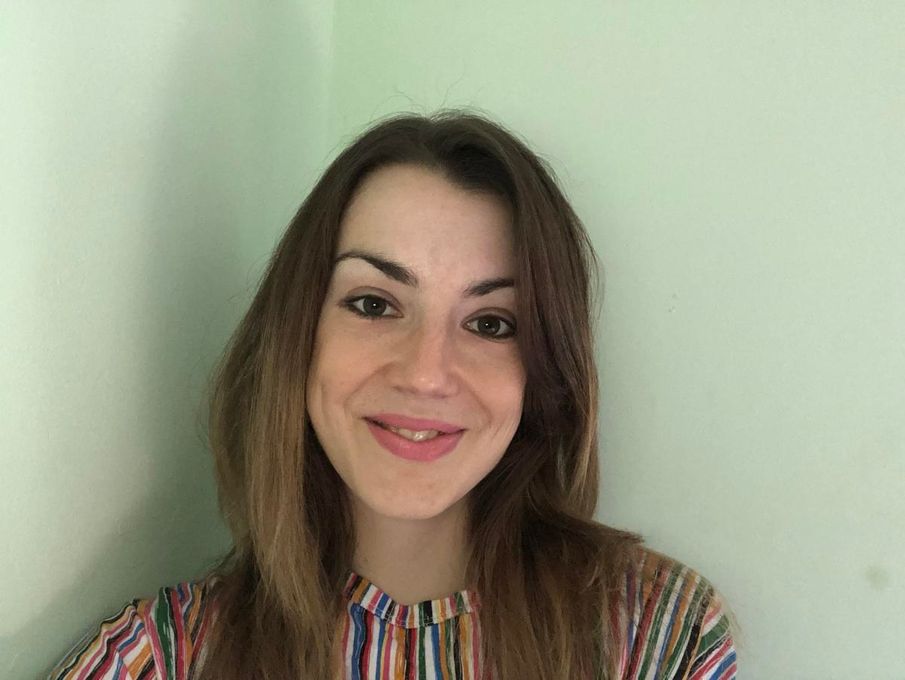When her strict dieting morphed into a serious eating disorder, would-be lawyer Hannah came close to losing everything. She hopes her story of recovery will inspire others to keep fighting
When we start a diet, we are led to believe that by changing our body shape, our lives will truly change for the better. For a short time, it might seem that way – the positive comments and attention keep us motivated to keep going, keep losing, changing our body mouthful by mouthful, calorie by calorie.
What we don’t anticipate, however, is what happens when the diet takes hold, when you can’t stop, when anorexia comes knocking, and then sneaks in without you noticing.
In telling you my story of anorexia, it’s not the weight loss that I want to tell you about. It’s not about the amenorrhea, the osteoporosis, or the bradycardia, that I developed.
I want to tell you about what I lost in terms of me. How I lost my soul, my identity, and ultimately me, Hannah – everything I had been, and everything I could become.
So let’s start at the very beginning, with Hannah Louise Brown, the conscientious, hard- working, and outgoing young woman. Sure there were issues in my upbringing, but let’s be honest, who hasn’t faced some difficulty?
At the age of 19, I felt euphoric: young and in love, working hard at my studies, with friendships that were both dependable and incredibly fun. I had a career mapped out in the legal profession, and everything glittered with promise.

Hannah Louise Brown
Who knows what it took? A photo perhaps? Or the odd comment about my weight? But I made the decision that the only thing missing from my life was the body I had dreamed of, that I saw in my idols, and that I believed would be the final piece of my perfect-life puzzle.
And you know what, at first I got everything that I had dreamed of – the body, the admiring comments, and the recognition I felt I deserved for sticking to my strict diet.
The problem was that it got stricter. I became more rigid with my rules, and lost the ability to see any other way of eating – or functioning – that didn’t conform to those rules.
One of the things about the extreme restriction of calories is that, eventually, you lose the ability to function normally or rationally.
Interestingly, there is evidence that calorie deficiency has a profound effect on food behaviours, irritability, mood, and levels of fatigue.
So it was no wonder that, as my food intake shrank, so did my understanding of how desperate my life had become; how I had gone from living a rich life, to merely existing. I had become a prisoner of anorexia and my own mind.
By the age of 23, I was virtually a skeleton. My sparkle had been extinguished. Mentally, physically, and emotionally I was incredibly unwell.
Recalling this stage of my life still brings so much heartache and agony – thinking back to the times that my mum came in to check I was still breathing; the tears that my brother cried while begging me to eat; the letters from friends who tried to get me to see the reality of the situation; and the times when people stared, assuming I was so, so sick. One young child even stopped her mother and asked: “Mummy, what’s wrong with that girl?”
The next year was spent in this awful limbo between inpatient units, battling the system, and going through the motions of recovery without putting any heart into it.
I spent time in Bethlem Royal Hospital, a mental health hospital in south-east London. It was truly my idea of hell, a prison, and the memory of it haunts me. I took part in group workshops, couples and family counselling, individual therapy, even screaming therapy, and of course cognitive behavioural therapy (CBT).
But nothing, and I mean nothing, was easing the deafening scream of my anorexia. Nothing was making me want to commit to my recovery and turn my life around.
Any motivation I had when I walked into the hospital had been gradually drained from me. Meal times were laborious and painful as the girls around me – the ‘ED pixies’ I called them – struggled with their demons, fuelling anxiety.

Hannah with local rugby players/p>
For breakfast, morning after morning, prunes and yoghurt. The horror of being woken at 6.30am every day for our regular weigh-in. Inpatient units have their merit, and of course I credit them with saving my life, but for me it took the form of a hell that I will never, ever forget.
Since coming out of hospital, the recovery process has been startlingly difficult, and I wish I knew what finally made me think more about life. I guess it came down to the sheer frustration and exhaustion that I felt at myself, and the realisation that the only person who could make any of that go away was quite simply me. I was, and I am, the author of my own journal. I turn every page and this was a set of pages I was definitely ready to turn.
I’ve learnt an incredible amount about myself over the years that I have been on this journey. I’ve been shocked and appalled at my behaviour, at the deceit, and the lies I have told. Pure starvation turned my temperament from beautiful to angry, from peaceful and content to hostile and totally unrecognisable.
But I’ve also learnt that I am tough, tougher than I ever thought, and probably tougher than I will ever give myself credit for. I’ve come to realise that I have a lot to grieve for, but so much more to be thankful for.
Anorexia has the highest mortality rate of all mental illnesses, but I know that I can be proud not to have become just another statistic. I vow to fight, and to keep on fighting.
It has taken me a few days to write this article, to find the words to articulate my illness, but while doing so I have received emails inquiring about further publications, blogs and campaigns. From being governed by a cruel and manipulative illness, I am now in a stronger position to tell my story in the hope it will help at least one person.
Peer support became an intrinsic and valued part of my experience, but with the NHS strapped for time and resources, I took the steps to create my own service – aneartohear.co.uk – because no one quite understands without having stared anorexia in the eye.
Anorexia has the highest mortality rate of all mental illnesses, but I know that I can be proud not to have become just another statistic
I have a yoga class which promotes body confidence and wellbeing, I’m a frequent panellist on local radio, and I campaign for mental health rights, access to treatment, and of course for the quality of that treatment.
I hope this story has shown how horrendous anorexia, eating disorders, and all mental illnesses, are.
My illness invaded so many areas of my life. It spread like a web to facets of my life that I thought were untouchable. Piecing things back together, and freeing myself from this web, has been so hard but also incredible and exhilarating. I have gone from despair to glory, stopping at every milestone and hurdle in between.
It takes a village to raise a child, an army to fight a war, and the love of all the angels in the world to recover from a mental illness. I consider myself blessed to have come this far; the journey is certainly not over, it might not ever end, but as long as my feet are facing forward there will always be two pairs of footprints in the sand, as I will not walk alone in this battle.
Graeme Orr | MBACP (Accred) UKRCP Reg Ind counsellor, says:
Anorexia took control, making Hannah physically, mentally and emotionally unwell. As with many people, the anorexia made it difficult to accept the support of friends, family and professionals. Anorexia reaches into all areas of our lives making it hard to function, but Hannah felt she learned about herself in the slow recovery process. She values her victories, as well as mourning the costs. She now offers a variety of support others use to combat their own anorexia.


Comments